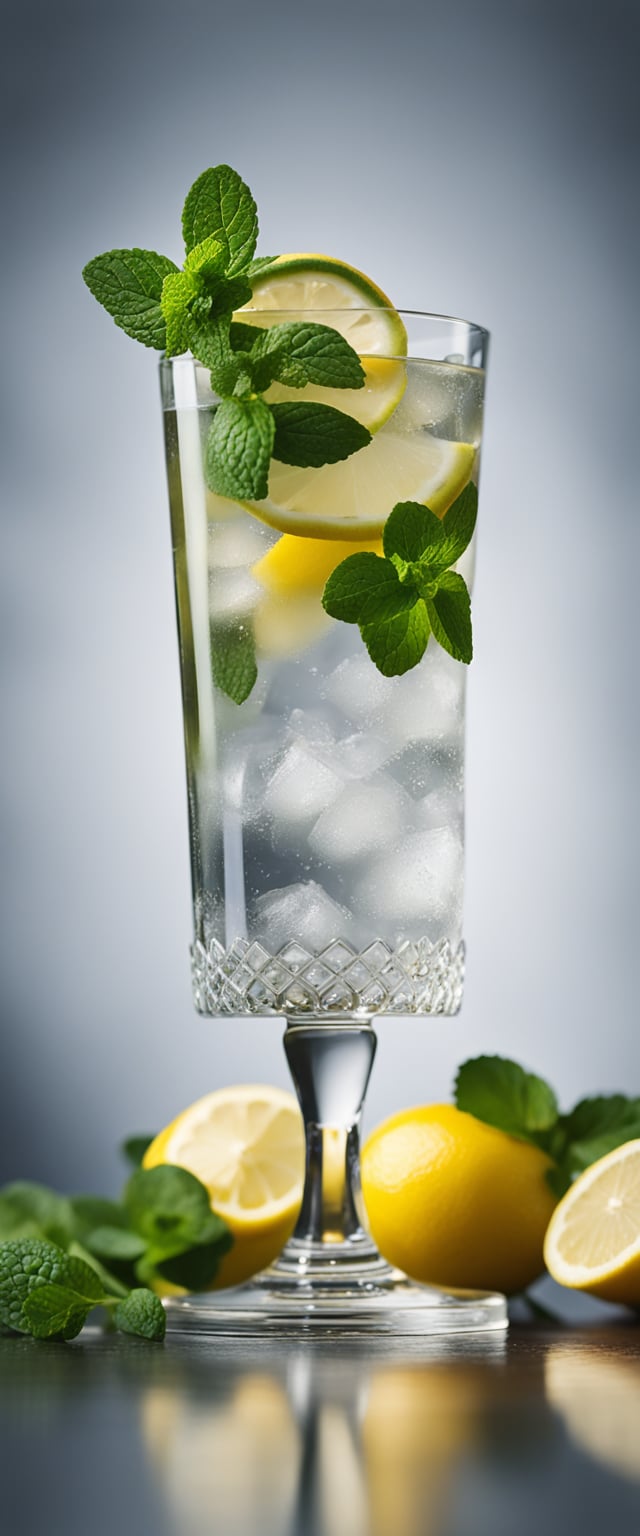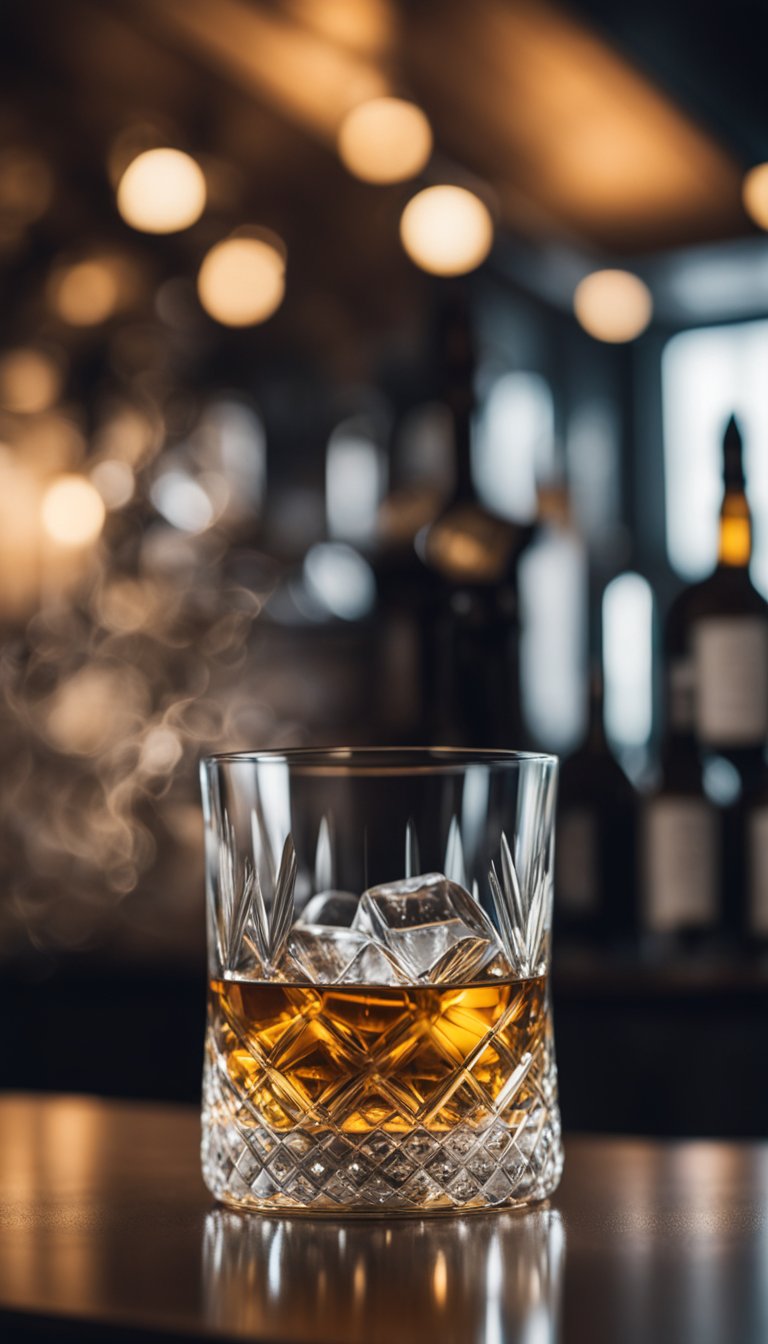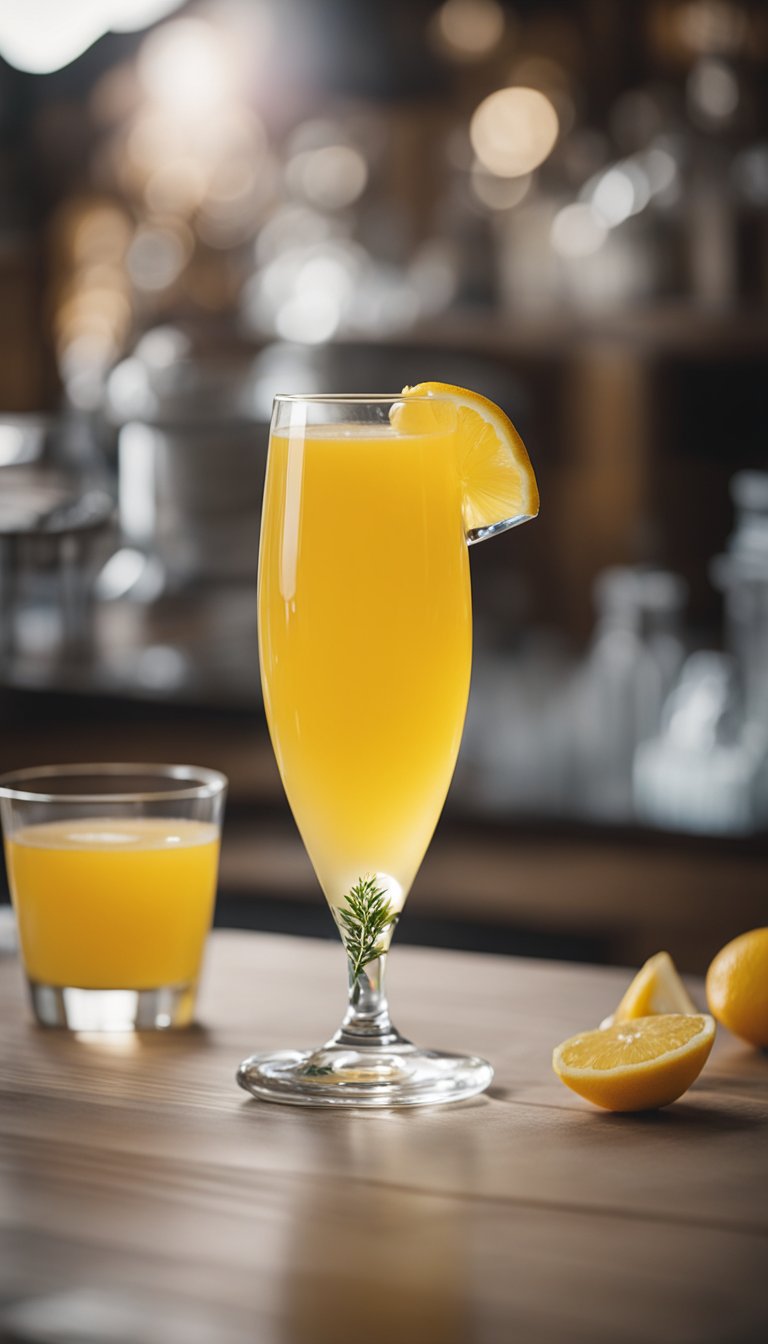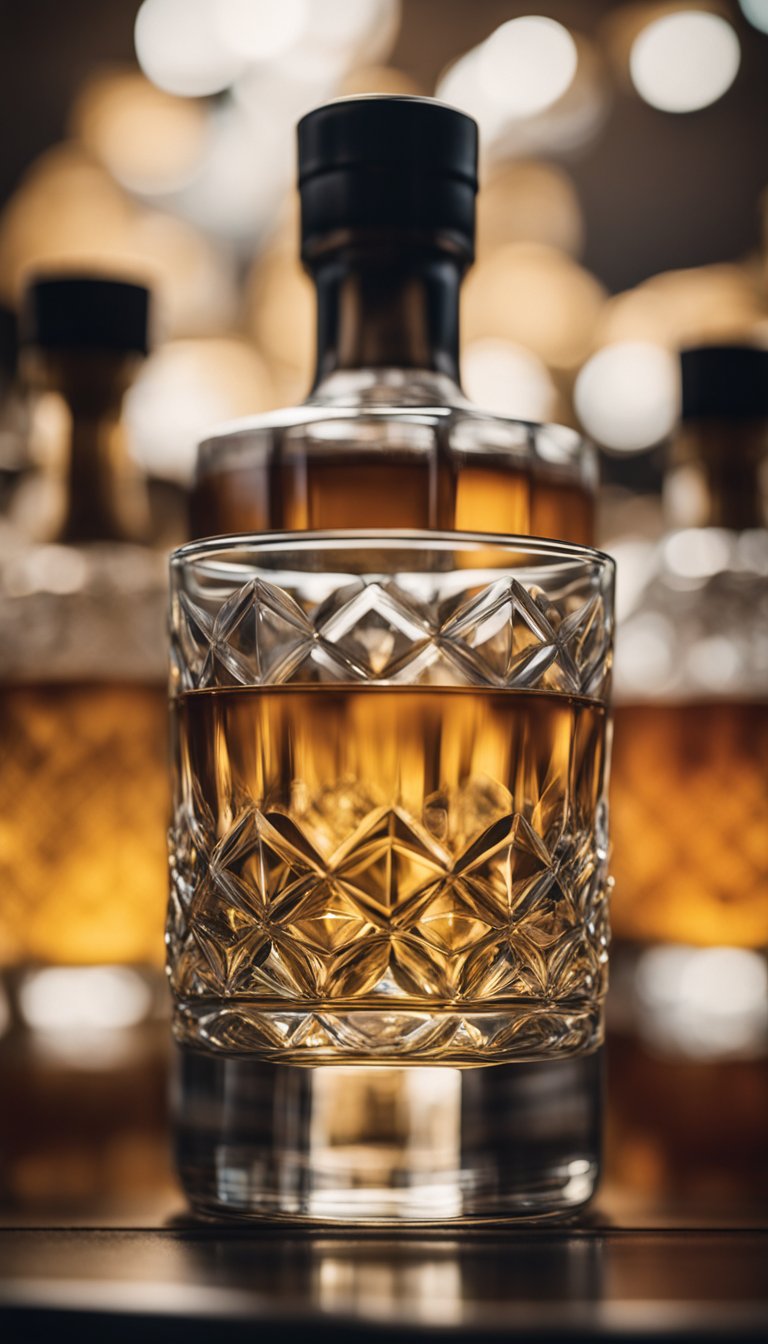unlocking explosive growth: EU and UK Alcohol-Free Spirit Market soaring Don’t miss out!
Section 1: The Current Landscape
In the world of drinks there is a subtle revolution taking place, and changing the way we experience our drinks. The traditional norm of alcoholic drinks dominating social gatherings being transformed that is particularly evident in areas like European Union (EU) and the United Kingdom (UK). Non-alcoholic or alcohol-free spirits are carving out a niche in the market, and their trajectory for growth is simply amazing.
A booming market
The market of alcohol-free spirits in the EU and the UK is experiencing a phenomenal growth. There is no longer a time when people who were not drinkers or seeking healthier options were only able to choose sparkling water or soft drinks with sugar. Today, an array of alcohol-free spirits graces the shelves of supermarkets and bars and caters to a discerning customer that wants class without alcohol.
market size and trend
To appreciate the magnitude of this change, let’s explore some of the statistics. Recent market studies have revealed that EU and UK alcohol-free spirit market is expected to attain a value of [bold]a.X. billion[/bold] by [bold]20XX[/bold]. This increase isn’t an anomaly; it’s an indicator of changing customer preferences.
Key Players and Their Contributions
The market’s ascent owes much to the trailblazing efforts of key players like [bold]Seedlip[/bold], [bold]Borrago[/bold], and [bold]Lyre’s[/bold], among others. These brands have taken the art of creating spirits that are alcohol-free to new heights making beverages that capture that essence traditional spirit but without the alcohol content.
consumer preferences and emerging brands
The rising popularity of alcohol-free spirits is inextricably tied to evolving preferences of consumers. These days, consumers are more concerned about their health, discerning, and socially conscious. They seek out drinks that go along to their values. spirits that are alcohol free fit the bill perfectly. Moreover, consumers are increasingly seeking unique, palatable alternatives to traditional alcoholic drinks.
With the increase in demand for consumer goods, numerous new brands have emerged to serve the growing market. These brands are marked by the power of innovation, authenticity and an unwavering commitment the highest quality.
Intriguing Possibilities
This rapid growth, which is driven by the changing behavior of consumers can offer exciting possibilities to businesses looking to tap into the EU and UK alcohol-free spirit market. The possibilities are endless however, to utilize it effectively, one has to first understand the underlying forces behind this incredible change.
In the following section in the next section, we’ll analyze these driving forces, while analyzing those factors that are driving the growth of alcohol-free spirit and what this means for businesses trying at navigating the new world.
In the first section We’ve laid the groundwork by discussing the current state in the EU and UK alcohol-free spirit markets. We’ve talked about the size of the market of players, their key roles, and the evolving preferences of consumers. Now, in Section 2, we’ll investigate the factors that drive this market’s astounding growth.
What’s driving the massive Growth in the EU and UK alcohol-free spirit Market?
Section 2: Unveiling the Driving Forces
In our previous article in which we delved into a trip through the new market for alcohol-free spirits in this region of the EU together with UK. The industry’s incredible growth gives a clear picture of the potential. But what’s driving this shift? In this segment we’ll dig into what’s driving the expanding industry.
1. Healthy and Wellbeing Trends
UnpredictablyHealth-conscious consumers are shifting their drink choices. Bold Concerns about the negative impact of drinking alcohol on health has led people to search for alternatives that allow them to enjoy a drink without compromising their overall health. Alcohol-free spirits are catering to this increasing population by providing an enjoyable and safe option. Certain terms such as “low ABV” (alcohol by volume) and “zero-proof” have become buzzwords in the health & wellness sector, indicating a significant shift in consumer preferences.
2. Changes in Social Dynamics
As society evolves, so do our social dynamics. Traditions of heavy drinking as the foundation for social gatherings are beginning to fade. Nowadays, people are choosing greater diversity and more inclusive experiences. Alcohol-free spirits enable everyone to join in the festivities without feeling excluded. They foster a sense of acceptance that fits with the modern culture of socializing.
3. The rise of Mixology and Craft Cocktails
ItalicCraft Cocktail culture has become a global phenomenon. Italic The technique of mixing drinks has developed beyond alcohol consumption, with bartenders and people who are interested in exploring the creative possibilities of alcohol-free spirits. The most complex and flavorful cocktails are created, which redefines what a drink can be. The range of spirit allows mixologists to experiment with a range of flavors. The result is the creation of a variety of non-alcoholic drinks.
4. Support for Regulation
Regulations and policies of the government are a key factor in shaping industries. In recent years, regulators agencies in the EU and the UK have shown their willingness to accept and encourage the growing popularity of alcohol-free spirits. This support includes clearer regulations for labeling, allowing items to communicate more clearly about their ingredients and benefits. These measures help build trust with the consumers.
5. Environmental and Ethical Concerns
The search for sustainable to consume ethically is no longer a fringe issue but an international trend. Alcohol-free spirits are often in line with these goals. They are made with a reduced environmental footprint than traditional spirits and tend to be vegan-friendly. They are sourced ethically and the principles of fair trade boost their appeal.
6. Evolution of Taste Preferences
The consumer’s palate has changed, searching for distinctive and unique flavor experiences. Alcohol-free spirits have responded to the demand by offering a wide selection of options. From botanical-infused alternatives to alcohol-free whiskeys that imitate the smoky flavors of the original and caters to high-end taste profiles. The consumer is no longer willing to compromise on flavor, and alcohol-free spirits have stepped up to the challenge.
7. Marketing and Branding
Effective branding and marketing have played a pivotal role in promoting awareness of spirits without alcohol. Brands with a strong ability to communicate their product’s quality flavor, taste, and health advantages have flourished. Innovative marketing campaigns and endorsements from influential people have reached an even larger audience, sparking interest and boosting sales.
8. Accessibility
The ease of access to alcohol-free spirits has grown drastically. They’re easily accessible in bars, restaurants as well as retail stores. Shopping online has also played a key role in making these products accessible to consumers, regardless of their locality.
9. Competitive Pricing
As the demand for spirits has increased, the market has become more competitive. This has resulted in competitive pricing, making alcohol-free spirit an affordable option for a more diverse range of consumers.
What’s Next?
We’ve seen that a myriad of factors are driving the rapid expansion of EU and UK market for alcohol-free spirits. In the next section we’ll look at the challenges and opportunities businesses will face as they traverse this burgeoning market.
in Section 2 we’ve revealed those driving factors behind the growing popularity of alcohol-free spirits in the EU as well as the UK. In Section 3, we’ll examine the issues and opportunities businesses operating in this market are likely to face.
Redefine Your Retail with Direct Bulk Orders from Swedish Distillers!
Navigating the opportunities and challenges in the EU and UK Alcohol-Free Spirit Market
Third Section: Way Ahead
In the previous parts We’ve examined the staggering growth and the driving forces that drive these trends in the EU and UK liquor-free market. It’s evident that this industry is growing but what’s ahead? In this section, we will navigate through the challenges and opportunities that businesses in this market will likely to face.
Challenges
1. The Regulatory Hurdles
While the support of regulatory agencies has been an important factor but, keeping up with the changing landscape of regulations is a major issue. Making sure that you comply with the labeling requirements and ensuring responsible advertising of alcohol-free spirits is crucial. This means that businesses must stay on top of regulatory updates.
2. Consumer Education
Many people aren’t familiar with the concept of alcohol-free spirits. Educating potential customers about their benefits, flavours, as well as the range of applications for these products is crucial. Brands need to invest in marketing campaigns that highlight the uniqueness of their products.
3. Competition
While the marketplace continues to grow there is a growing competition. Brands need to stand out and keep on innovating to stay relevant. This can be done by developing new flavors, enhancing packaging, and exploring new distribution channels.
4. Scaling Production
Responding to the growing thirst for alcohol-free spirits may be a difficult task for small-scale producers. Making production scale while ensuring high quality is necessary to keep up with market demand.
5. Taste perception and Quality
Believing that alcohol-free spirits don’t have the intensity of flavor or quality comparable to alcohol-based drinks is a constant challenge. Brands have to invest in the research and development process to produce products that match their alcohol counterparts with respect to taste and quality.
Opportunities
1. Diverse Flavor Profiles
The need for varied flavors offers a huge opportunity. Brands are able to explore new and exotic ingredients to develop unique and attractive alcohol-free spirits.
2. Health and Wellness Focus
Continued alignment with wellness and health trends is an enormous opportunity. Brands can benefit from the health benefits associated with alcohol-free spirits, such as reduced calorie counts and fewer hangovers, to inform their marketing strategies.
3. Mixology and Collaborations
Collaborations with restaurants, bars as well as mixologists can bring drinks that are alcohol free to a wider market. Brands can collaborate with experts to come up with exciting and delicious non-alcoholic cocktail recipes.
4. Sustainability
Promoting sustainability and ethical choices in sourcing can be an compelling selling point. People are more interested in products that match their beliefs.
5. Direct-to Consumer Sales and E-commerce
With the growth of e-commerce, brands can expand their reach beyond physical stores. Setting up a strong online presence and offering direct-to-consumer sales can be an important game changer.
What’s Next?
As we’ve learned, the business path for companies within the EU and UK alcohol-free spirit market is full of challenging opportunities and challenges. In the following section, we will discuss strategies to be successful in this competitive landscape, ensuring that your brand remains ahead.
The last section, Section 3, we’ve discussed possibilities and threats facing businesses operating in both the EU in the EU and UK Spirits that don’t contain alcohol. In Section 4 we’ll look at strategies to succeed in this rapidly evolving industry.
Strategies for Success for the EU and UK Alcohol-Free Spirit Market
4. How to navigate the Competitive Landscape
Since the EU as well as the UK alcohol-free spirit market continues to gain momentum, it’s crucial for businesses to be able to navigate the market efficiently. In this article we’ll examine the best strategies and practices to ensure your brand thrives in this dynamic and busy market.
1. Product Innovation
In a marketplace that is overflowing with options, product innovation can be your partner. Continue to study and develop new products and flavors to attract consumers. Explore unique ingredients and blends that stand apart. Try incorporating herbs, botanicals and exotic fruit to create unique and memorable alcohol-free spirits.
Pro Tips Conduct surveys with your customers and gather feedback for understanding the preferences of your customers and their expectations. Take this information and tailor your product development efforts.
2. Brand Differentiation
Being noticed in a industry requires you to have a strong brand story and identity. Explain what makes your business unique and why consumers ought to prefer your alcohol-free drinks over others. Emphasize factors such as your commitment to sustainability, quality and ethically sourced products.
Pro Tips Write a strong brand narrative that is appealing to your desired audience. Let your customers know about your brand’s background, the values it holds, and the work that goes into your products.
3. Collaborations and Partnerships
Collaborations offer a different perspective and broaden your reach. Work with restaurants, bars and mixologists to make distinctive cocktails with no alcohol using your product. These partnerships can expose your brand to a broader crowd and tap into the expertise of industry professionals.
Tips: When collaborating to collaborate, ensure that your business values are aligned with those of the partners that create genuine and meaningful connections.
4. Digital marketing and e-commerce
A strong online presence is not a requirement in today’s world. Spend money on a user-friendly website and make it more optimized for online shopping. Social media platforms can be used for interaction with your target audience and share delicious cocktail recipes, and run targeted ad campaigns.
Pro Tip: Use data analytics in order to comprehend your online audience more effectively. Adjust your marketing and content strategies to reflect their preferences and behaviors.
5. Consumer Education
Enlightening the public about the benefits and benefits of alcohol-free spirit is vital. Create content that is informative through webinars, blogs, as well as social media. Make virtual tastings available for your products. A knowledgeable consumer will be more likely to appreciate worth of what your offerings.
Pro Tip: Develop FAQs and guides to answer the most frequently asked questions of consumers about spirits that are alcohol-free. Use them as a resource that help consumers make informed decisions.
6. Sustainability and ethical practices
Consumers are increasingly aware of ethical and sustainable choices. Be a part of this by sourcing products responsibly, reducing carbon footprint, and contributing to charitable causes. Your commitment to sustainability should be highlighted on your corporate identity.
Pro Tip Sharing your sustainability initiatives in a transparent manner on your site and social media. Transparency builds trust with consumers.
What’s ahead
In Section 4 We’ve talked about the key strategies for navigating the competitive landscape of the EU and UK alcohol-free spirit markets. But, the journey doesn’t stop here. In the next article we’ll look at long-term growth strategies, and then look at what the future holds for this thriving industry.
As we close Section 4, we’ll continue our examination of the EU and UK alcohol-free spirit market in Section 5. In the next section, we’ll discuss the long-term growth potential and the future trends shaping this dynamic industry.
Section 5:”The Future” of the EU and the UK The Alcohol-Free Spirit Market
The tour through the thriving world of alcohol-free spirits in these countries of EU and UK closes with our final section. In this section we’ll peek into the future, and look at possible growth trends in the coming years and emerging trends which are shaping our perceptions of this thriving industry.
The Market that is Growing
As we’ve observed in the earlier sections, the alcohol-free spirit industry in both the EU and UK has seen a rapid growth in recent years. The demand for sophisticated and alcohol-free alternatives isn’t anymore a trend, but a fundamental shift in consumer preferences. This trend is set to keep growing.
Growth Drivers Key to Success
Several factors are contributing to the continuous growth of market for alcohol-free spirits.
-
Health and Wellness: As consumers become more conscious of their health, they are seeking alternatives that let them have mixed drinks and cocktails without the negative effects of alcohol.
-
Innovative Product Offerings: The market will see an unending flow of innovative and diverse alcohol-free spirit brands. Brands will test new flavor profiles, ingredients, and production methods.
-
Mixology Culture The growth of mixology culture along with craft cocktails are fueling the demand for alcohol-free, premium spirits. Mixologists and bartenders are making intricate, non-alcoholic cocktails that are making these drinks more popular.
-
Sustainability: Sustainable and ethical practices are becoming more prominent. Companies that place a high value on sustainability in ingredient sourcing, packaging, and production will likely get an edge in the market.
Consumer Education and Awareness
Future growth of the market for alcohol-free spirits depends on education for consumers. As more consumers are aware of the options readily available, they’ll research information about how to utilize spirits without alcohol in cocktails, blend them with food and integrate them into their lives.
FAQs Concerning Alcohol-Free Spirits
Q1 Does alcohol-free spirit really alcohol-free?
A1: Alcohol-free spirits are alcohol-free and contain no or a minimal amount of alcohol, typically less than 0.5 percent ABV (alcohol through volume). This makes them drinkable without the intoxicating effects that alcohol can bring to drinks.
Q2: Can I make alcohol-free spirits work for cocktails?
A2: Alcohol-free spirits can be utilized as a base for cocktails, much like traditional spirits. They work well in classic cocktails like Mojitos, Cosmopolitans, and Negronis. There is a lot of room for experimentation in creating unusual non-alcoholic drinks.
Q3: Do alcohol-free spirits taste similar to their alcohol-based counterparts?
A3 Many alcohol-free spirits seek to imitate the taste in traditional spirits. While some come remarkably close but taste may differ between brands and products. It’s best to explore different alternatives to find the flavor that you like.
The Role of Technology
Technology will play an important aspect in the future of the industry. E-commerce platforms and online sales will continue to increase providing consumers with a convenient way to access alcohol-free spirits. Online tastings and brand experience, as well as personalized recommendations powered by AI can increase customer satisfaction.
The Conclusion Growing Future
The series traversed the diverse and dynamic landscape and complexities of EU and UK alcohol-free spirit market. From its genesis and development to product innovations, market strategies, and the competition landscape, we’ve discovered the many facets of this ever-growing business.
After this journey, it’s clear that the alcohol-free spirit market isn’t just a trendy trend and is a trend that is changing the way we think about and consume beverages. With a dedication to quality and innovation, as well as sustainability and education for consumers and sustainability, brands will thrive in this booming market.
Thank you for joining us on this journey into our world of spirit that is alcohol-free. It doesn’t matter if you’re a manufacturer looking to build a name for yourself or a consumer looking for distinctive choices there’s a numerous opportunities within this exciting business.
We hope that you find this series insightful and motivating. This is the time to look ahead to spirit that is alcohol-free in the EU and the UK!






